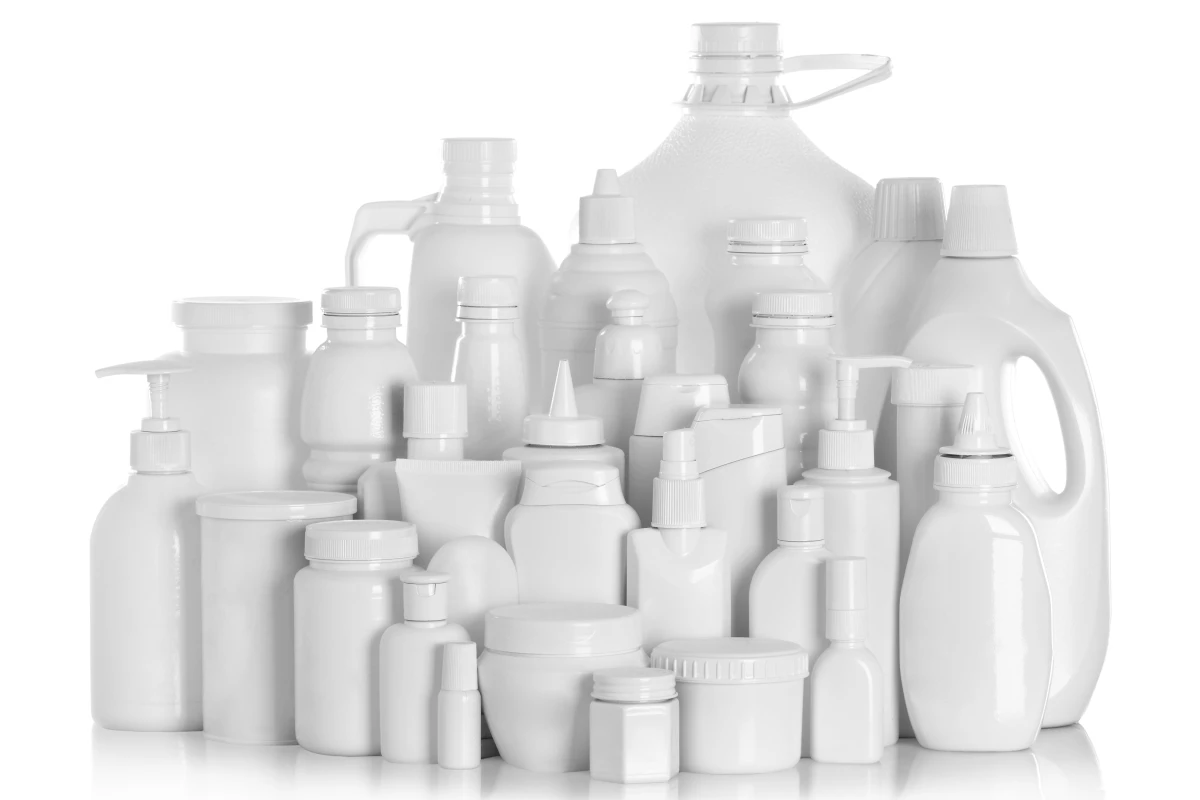Researchers from the Grossman School of Medicine at New York University are calling for urgent regulatory action limiting the use of chemicals called phthalates in the production of plastics. The research strikingly estimates up to 100,000 premature deaths in the United States every year could be attributed to phthalate exposure.
Phthalates are chemicals often added to plastics to make them softer and more flexible. They have been used in manufacturing for more than half a century and can be found in thousands of different consumer products.
“Things like shower curtains, boots, and IV tubing are made from that same hard white plastic that a plumber would use, but when you add about 30% by weight to it of a specific phthalate, you get soft pliable vinyl plastic,” explains Russ Hauser, a researcher investigating the health effects of chemical exposure. “Phthalates are also used in many personal care products such as colognes, perfumes, soaps, and shampoos, in the coatings of some medications, and in vinyl tubing used for food processing.”
Phthalates are well known endocrine disruptors, with extensive animal research showing exposure to the chemical can disrupt normal hormone function. The new study, published in the journal Environmental Pollution, set out to investigate the relationship between phthalate exposure and mortality.
The research investigated a nationally representative cohort of 5,303 adults aged between 55 and 64. Urine samples were analyzed to track phthalate levels, and mortality data was gathered from a follow-up period of around ten years.
“Our findings reveal that increased phthalate exposure is linked to early death, particularly due to heart disease,” says Leonardo Trasande, lead author on the new study. “Until now, we have understood that the chemicals connect to heart disease, and heart disease in turn is a leading cause of death, but we had not yet tied the chemicals themselves to death.”
Extrapolating the findings to all those aged between 55 and 64 in the United States, the researchers estimate phthalate exposure could be associated with over 100,000 premature deaths every year. The economic cost of these early deaths is thought to be over US$40 billion dollars.
“Our research suggests that the toll of this chemical on society is much greater than we first thought,” says Trasande. “The evidence is undeniably clear that limiting exposure to toxic phthalates can help safeguard Americans’ physical and financial well-being.”
Another newly published study, from researchers at the University of Washington School of Medicine in Seattle, found phthalate exposure during pregnancy could be linked to altered expressions of 38 different genes in the placenta.
“Our findings suggest exposure to phthalates during pregnancy is associated with changes in gene expression in the placenta,” says Alison Paquette, lead author on the study. “Such changes could affect placental functioning that lead to complications in pregnancy, such as premature birth or miscarriage, and changes in fetal growth and development.”
The relationship between phthalate exposure during pregnancy and abnormal brain development in children is a robustly researched area. A review article on the subject published earlier this year, from a team of researchers around the United States, called for urgent reforms to remove the chemical from most plastic manufacturing.
“Substantial evidence links exposure to phthalates with increased risks for child learning, attention, and behavioral problems,” the article concludes. “We therefore recommend that phthalates be eliminated from products that may lead to exposure of women of reproductive age, pregnant women, infants, and children.”
Russ Hauser, a co-author on this review article calling for phthalate regulation, believes completely eliminating the chemical from all consumer products is a realistic proposition. Most products can simply substitute phthalates with other compounds, Hauser says, while also noting there needs to be thorough study into the risks of any replacement chemicals.
Hauser explains the biggest reason for totally eliminating phthalates from all consumer products is many products contain the potentially harmful chemical but do not need to list it as an ingredient. Personal care products, for example, such as shampoos and soaps can often contain phthalates as part of a scent formulation. And consumers would never know they are being exposed to the chemical.
“If phthalates in the product are considered part of the scent formulation, they don’t need to be listed on the ingredient list, because scents are considered proprietary.” says Hauser. “Even though some products do list phthalates, it’s really hard for consumers to read the labels with these long chemical names. It’s really hard for even a very knowledgeable consumer to buy products and avoid phthalates.”
The new research was published in the journal Environmental Pollution.
Source: NYU Langone




